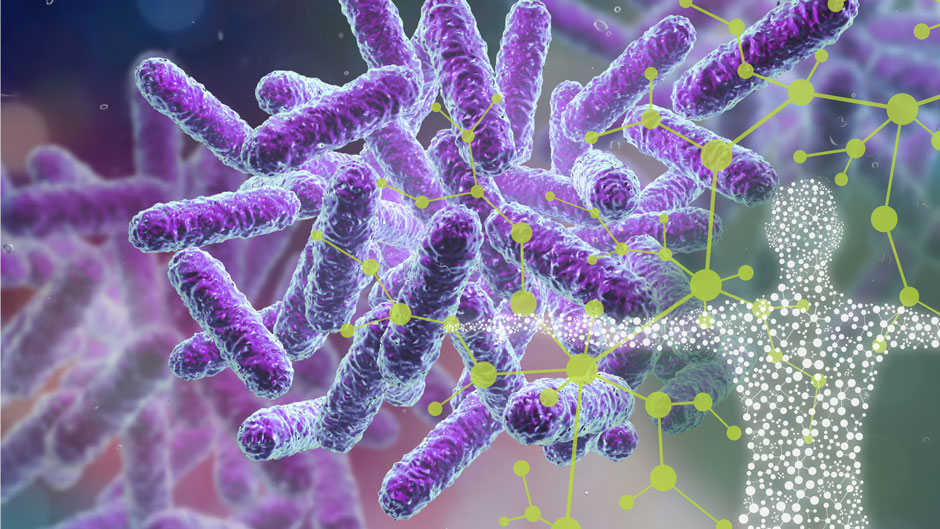Capable of improving people’s health and transforming care, microbiome research is an emerging field that was front and center during the recent 2020 Miami Winter Symposium.
Each year for the past 50 years, the Miami Winter Symposium highlights a trending research theme; experts and scientists come together to learn about new scientific methods and approaches related to the theme. This year’s focus was microbiome research, which featured world-renowned researchers at the forefront of the field.
During the event held Jan. 26–29 at the Hyatt Regency Miami, interactive displays provided an opportunity for researchers to advance the field and contribute to groundbreaking studies in molecular mechanisms that link microbiome research and improvements in human health. The University of Miami Frost Institute of Chemistry and Molecular Science was a co-sponsor at the symposium.
In collaboration with the symposium, the Frost Institute presented a pre-conference panel session entitled “Microbiome and Molecular Sciences: The Next Breakthroughs,” which included a distinguished panel of top scientific journal editors, as well as industrial and academic scientists who discussed the current and future of microbiome research and its impact on health, the environment, and society.
“The Frost Institute stimulates interdisciplinary research in the fields of chemistry and molecular science, and it is a bridge to new paths of collaboration in scientific discovery and dual research within this growing field of microbiome exploration that studies our world on a molecular level,” said Leonidas Bachas, dean of the University of Miami College of Arts and Sciences and interim director of the Frost Institutes of Science and Engineering. “It was exciting to see how these fields were represented by some of today’s greatest minds in science, collaborating on ways to improve human health.”
The panel discussion was moderated by Dr. Joan Guinovart, a scientist and professor of biochemistry and molecular biology at the University of Barcelona, and founder and director of the Institute for Research in Biomedicine. Featured panelists included Manoj Dadlani, CEO of CosmosID; Dr. Lakshmi Goyal, editor of Cell Host & Microbe; Dr. Andrew Marshall, chief editor of Nature Biotechnology; and Dr. Michal Toborek, professor and vice-chair for research at the University of Miami Department of Biochemistry and Molecular Biology.
Before a large audience of attendees from more than 30 countries, the panelists examined the current trends and research opportunities in microbiome research, which offers unending possibilities in a field able to pave the way for big breakthroughs.
Researchers continue to deepen their understanding of theimportance of environmental and community factors that drive microbiome composition. They emphasized that as we recognize the underlaying molecular mechanisms that determine microbe-host interactions,we can improve our understanding of the potential microbiome research provides in advancing health and treatment options.
The pre-session panel discussion at the Miami Winter Symposium was also hosted by the University of Miami’s Department of Biochemistry and Molecular Biology and the Dr. John T. Macdonald Biomedical Nanotechnology Institute. Established in 2017, the Frost Institute of Chemistry and Molecular Science provides programs that advance collaboration and innovation and lead cutting edge research across the sciences.

